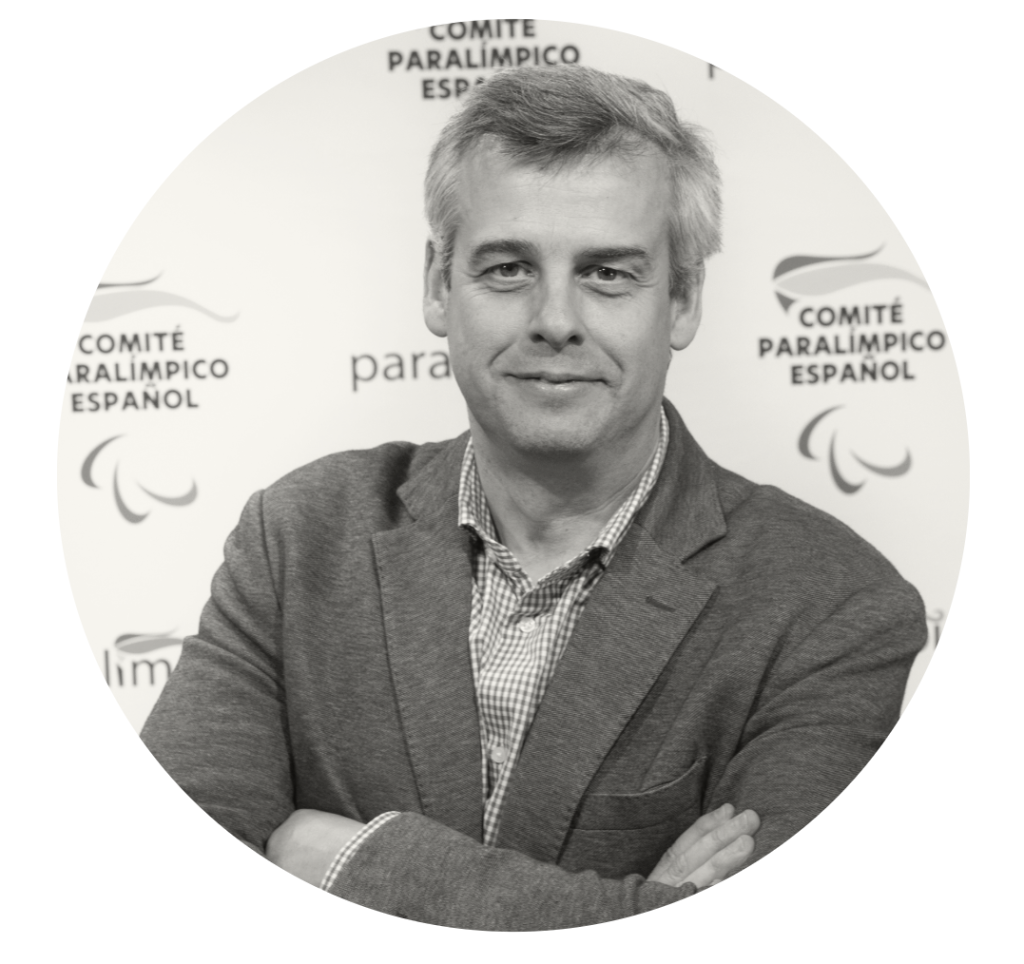
Dr. Olga Kolotouchkina
Lecturer and researcher of Communication and Branding, Faculty of Media and Communication, Complutense University of Madrid.
Email: olga.kolotouhckina@ucm.es
Twitter: @okolotouchkina

Prof. Carmen Llorente Barroso
Professor of Communication and Advertising, Faculty of Media and Communication, Complutense University of Madrid.
Email: carmenllorente@ucm.es

Luis Leardy
Communication Director, Spanish Paralympic Committee.
PhD Candidate, Faculty of Media and Communication, Complutense University of Madrid.
Email: luis.leardy@paralimpicos.es
Twitter: @luisleardy
After winning four medals at the 2011 Spanish Adapted Swimming Championship at just 12 years old, Núria Marquès joined the AXA Paralympic Promise Team. Founded in 2010 by the AXA Foundation and the Spanish Paralympic Committee, this initiative provides holistic support to young Paralympic swimmers, helping them excel in high-performance training and participate in national and international competitions. AXA, the global insurance giant, has been a key sponsor of the Spanish Paralympic Committee since 2008, offering financial backing through the Spanish National Plan for Key Paralympic Sports, which supports top-tier Paralympic athletes, coaches, and promising young talent. Since 2010, AXA has also organized the Adapted Swimming Championships, which has evolved into the National League of Adapted Swimming.
Since her debut at the Rio 2016 Paralympic Games, Núria Marquès has won an impressive seven Paralympic medals in swimming, with three of these earned at the Paris 2024 Games. Her international success extends beyond the Paralympics, with an additional 32 medals from World and European Championships. In 2019, Núria became AXA’s brand ambassador, where she has been actively contributing with her Paralympic experience to corporate branding, external communications, and employee engagement initiatives.
Núria’s journey with AXA underscores the unique value of Paralympic sponsorship as a strategic asset for corporate brands committed to positive societal change and the promotion of equity, diversity, and inclusion (EDI). Aligning with exceptional performances in adapted sports, as well as celebrating the emotional power of athletes overcoming both sporting and everyday barriers, creates substantial value for a company’s image and reputation. Beyond just financial support, Paralympic sponsorship plays a critical role in shifting societal perceptions of disability and fostering meaningful inclusion of people with disabilities in public life. The increased media visibility of Paralympic athletes and their inspiring personal stories serves as a catalyst for advancing social justice and building truly inclusive communities.
Both the International Olympic Committee (IOC) and the International Paralympic Committee (IPC) have worked to equalize the contributions of TOP Olympic sponsors to both the Olympic and Paralympic Games. Paris 2024 was hailed as a transformational event, as highlighted in the inauguration speeches of IPC President Andrew Parsons and Paris 2024 President Tony Estanguet. For the first time in Paralympic history, live coverage was provided for all 22 sports categories, expanding the global audience with a record number of national broadcasters.
This unprecedented visibility brought several key developments to the forefront, redefining the value of Paralympic sponsorship. The growing presence of young athletes, such as 13-year-old silver medalist Iona Winnifrith and 16-year-old Spanish gold medalist Anastasiya Dmytriv (another AXA Paralympic Promise Team member), has significantly increased the appeal of the Paralympic Games for younger audiences. By showcasing these talented young athletes, the Games are transforming cultural perceptions of disability, especially among the younger generation.
Another key shift has been in the media’s evolving narrative. There is now a greater emphasis on celebrating athletes’ achievements and body diversity rather than focusing on disability as a “tragic” personal story. The use of enhanced mobility tools like prosthetics and wheelchairs is still a visual focal point, but the spotlight is now on the athletes’ strength, resilience, and dedication to their sport. The playful Phryge mascot of the Paris 2024 Games, with its prosthetic leg, symbolizes this growing normalization and celebration of body diversity. Additionally, social media platforms have amplified the voices of Paralympic athletes, who share inspiring stories of perseverance and success, further deepening the emotional connection with global audiences.
For sponsor brands, Paralympic events offer a powerful mix of alignment with exceptional athletic performances and an active role in driving meaningful societal change. Supporting the Paralympic movement challenges persistent disability stereotypes and increases global awareness of disability issues, while demonstrating leadership in the inclusion of people with disabilities in public and business life. While Paralympic sports represent just one facet of the disability experience, they play an essential role in shaping more inclusive societies that embrace personal differences and promote mutual respect.

